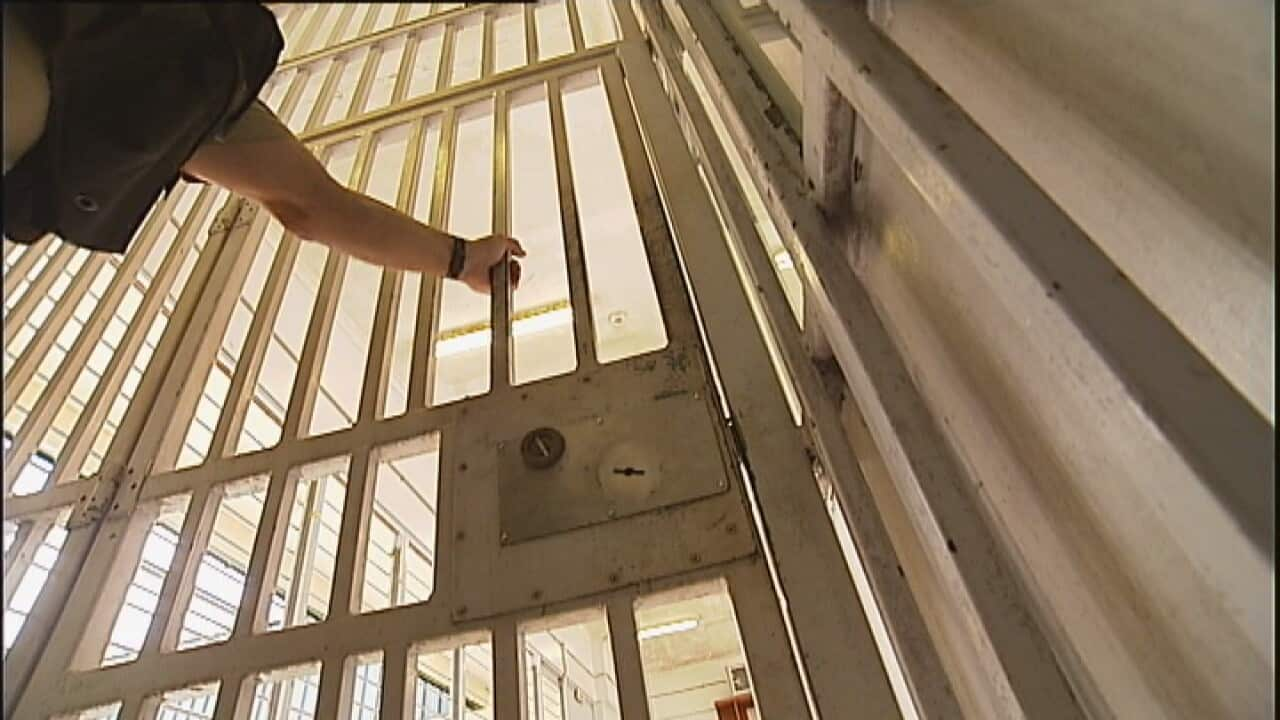The Tennant Creek man spent time in Northern Territory Correctional centres, and says being stripped and beaten by prison guards is considered ‘normal’.
“They’d take you down the back and they’d bash you down the back,” he explains.
“But mostly us Aboriginal prisoners.” David is sitting on a park bench trawling through old newspaper clippings he’s collected over the years.
David is sitting on a park bench trawling through old newspaper clippings he’s collected over the years.

David complained repeatedly about racial discrimination and harassment while in prison. Source: Supplied
‘Prisoner strangled by guard’, one headline reads.
“That was my friend,” David says as he looks down at the article.
“They took him down the back and they bashed him down the back, he showed me his injuries he had, he lifted his shirt and he had all them bruising on the side there on his ribs and on his back.”
Two months after that incident, David got the news his friend had taken his own life.
“He was found hanged in his cell with a sheet around his neck,” David remembers.
“He felt hurt, he did get hurt, and you know he was scared…afraid.”
David made the decision to give evidence to investigators, but for that he says he paid a terrible price.
“They had hatred against me when I testified, they hated me, and I was mistreated for all that time.”
He explains he was stripped and held in isolation a number of times.
“You have nothing, you’re in a tiny room with nothing but a camera there looking at you,” he points to the sky, as if to show me where the camera was.
“It hurts you, you know, it makes you think.
“We are human beings too, us Aboriginal people, and we hurt and think too,” he says softly.
David was jailed on assault charges. His time in prison didn’t start well, when prison officers found a sleeping pill in his possessions. Another man claimed responsibility but it didn’t stop David being classified as an Identified Drug User (IDU). That meant he spent a lot of time in a block where high security prisoners are kept.  David says that due to his high security classification he served his sentence with limited visitation, no access to rehabilitation programs, and regular drug tests.
David says that due to his high security classification he served his sentence with limited visitation, no access to rehabilitation programs, and regular drug tests.

David requested to be moved to a different prison block on various occasions. Source: Supplied
He has been on the outside for a few years now, but his prison days have left him with a terrible legacy.
“He does have nightmares you know about what happened to him in there, especially [from when he was] in isolation,” his wife, Geraldine Limerick, explains.
“It changed him a lot, yeah you know it did change him now.”
David Dixon sums up the way he and other Indigenous inmates were treated inside.
“They treat us like animals, like dogs, we’re not human beings in prison, it’s a different story,” he shakes his head.
“I still think about it, this is 2016 now ... in my memory, I never will, in my mind, I never will forget anything.

No traces of illegal substances were found in David's blood tests. Source: Supplied
“What prison officers do to us, how they mistreat us, they can be cruel and they can do anything because they have the power of doing these things.”
“It can happen in prison, because it’s behind closed doors.”
The Hamburger report into Northern Territory Corrections System revealed a deeply flawed system of incarceration, describing a system in need of major reform.
Released late last week the report to the NT Government made 172 recommendations of change.











